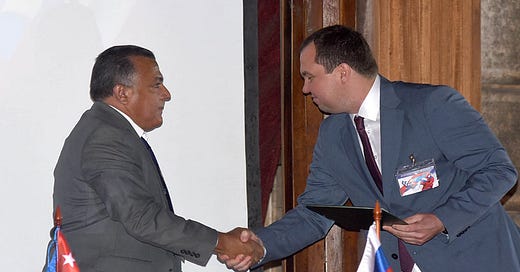Cuba and Russia are advancing to a new stage in economic relations and commercial ties of mutually beneficial cooperation. Russia is offering to the island nation a variety of initiatives of investment that are designed to diversify and increase Cuban exportations.
The Eleventh Meeting of the Business Affairs Committee of Russia and Cuba
On May 17-19, 2023, the Eleventh Meeting of the Business Affairs Committee of Russia and Cuba met in the historic Hotel Nacional in Havana. The Meeting occurs in a scenario very different from the Tenth, which was held in Moscow in September 2019. Today Cuba confronts the impact of the intensification and strengthening of the U.S. blockade, and Russia faces an economic war that the West desires to give an extraterritorial character. Fifty-two Russian and 106 Cuban companies participated in the 2023 meeting.
Bilateral commerce between Russia and Cuba reached 452 million dollars in 2022. Russian exportations tripled in 2022 from the…



